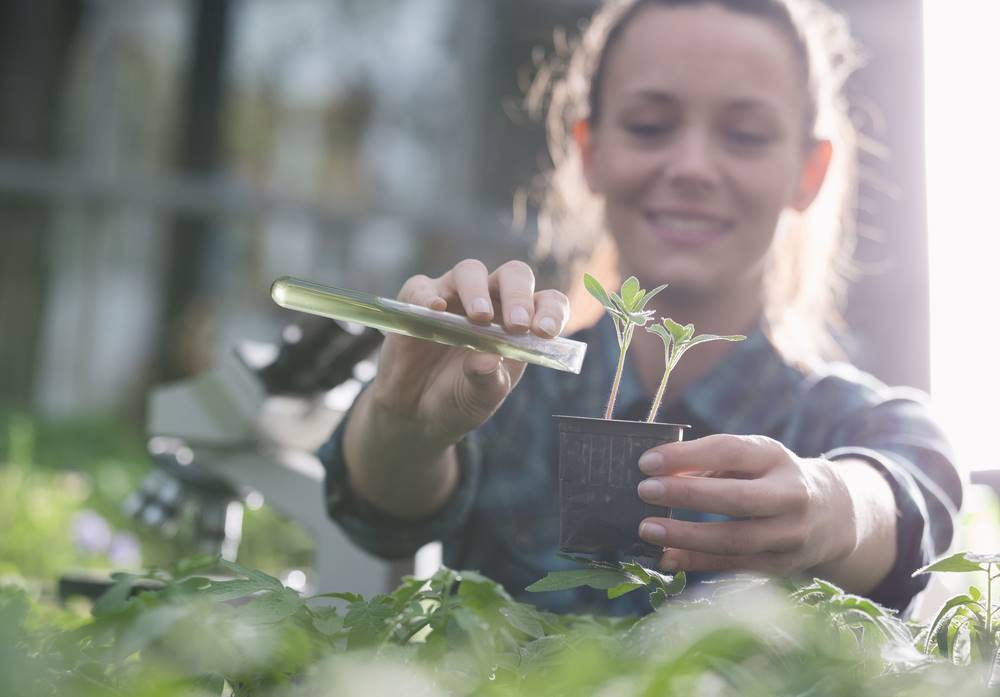IICA can apply for financial instruments to carry out initiatives that are part of the climate planning efforts of its Member States.

San Jose, 12 July 2021 (IICA) – The Green Climate Fund (GCF) accredited the Inter-American Institute for Cooperation on Agriculture (IICA) to implement projects funded by its loan portfolio, enabling the hemispheric agency to access resources to support climate adaptation and resilience initiatives for agriculture and rural areas in the countries of the Americas.
With the accreditation granted by the GCF in early July, IICA can apply for resources to develop projects with a maximum value of USD 50 million per initiative.
“IICA’s accreditation during the 29th meeting of the Board of Directors of the GCF represents a key improvement in the Fund’s capacity to support the climate needs of the countries in Latin America and the Caribbean. Soil-based solutions play a pivotal role in overcoming the climate crisis and we look forward to partnering with IICA to help achieve its regional climate ambitions through innovative agricultural solutions”, commented Javier Manzanares, Deputy Executive Director of the GCF.
The GCF’s decision lays the foundation for a structural change in IICA’s ability to support and add value to the resilience agenda of its Member States, by promoting ecological and climate-smart agriculture.
At present, IICA is implementing two approved readiness projects funded by the GCF that will benefit 17 countries in Latin America and the Caribbean.
These initiatives are “Strengthening the Foundation for a Climate Responsive Agricultural Sector in the Caribbean” for The Bahamas, Belize, Dominica, Haiti, St. Lucia, St. Kitts and Nevis, St. Vincent and the Grenadines, Suriname and Trinidad and Tobago; and “Post COVID-19 Green Recovery for Food, Health, and Water Security Strengthened by Financial and Technological Innovations in Latin American Countries” for Ecuador, Brazil, Guatemala, Peru, Colombia, Mexico, Uruguay and Bolivia.
“The accreditation by the Green Climate Fund opens a world of opportunities in which, through coordinated actions with the ministries of agriculture and of the environment and other stakeholders of the agriculture sector in the Americas, we can develop ambitious projects and programs that will change the way we practice agriculture today, with a view to the future imposed by climate change”, said Manuel Otero, Director General of IICA.
“We have demonstrated that we have a robust institutional system to effectively and transparently manage projects to act as a bridge between the needs of agriculture in the Americas and the investments necessary for a paradigm shift”, he added.
The accreditation establishes a direct link to the messages approved by the Member States of IICA, which recently consolidated their unified position ahead of the UN Food Systems Summit.
These messages underscore the fact that food production systems are particularly vulnerable to the negative effects of climate change and that climate change imposes challenges that necessitate a focus on adaptation to guarantee the systems’ resilience and to maintain the necessary production for food security.
Thus, agricultural production must move toward sustainable systems that promote a balance between carbon emissions and sequestration and take into consideration the positive externalities of ecosystem services, which will require systems that quantify them and foster their usage.
The purpose of the GCF is to make a significant contribution to the efforts of the international community to combat climate change—the ultimate goal of the United Nations Framework Convention on Climate Change (UNFCCC).
Within the context of sustainable development, the fund promotes a paradigm shift toward low emission, climate-resilient development, supporting developing countries in limiting or reducing greenhouse gas emissions and adapting to the effects of climate change, all while considering the needs of particularly vulnerable nations.
As part of its mission to provide technical cooperation of excellence, IICA is now partnering with the global organization and committed to the agriculture sector of its member countries.
“The accreditation process was not a sprint. This milestone involved teamwork focused on creating a favorable evaluation of IICA’s situation, policies and procedures, history and demonstrable capacity with respect to the GCF’s standards”, stated Beverly Best, Director of External and Institutional Relations at IICA and focal point to the GCF.
More information:
Institutional Communication Division
comunicacion.institucional@iica.int











